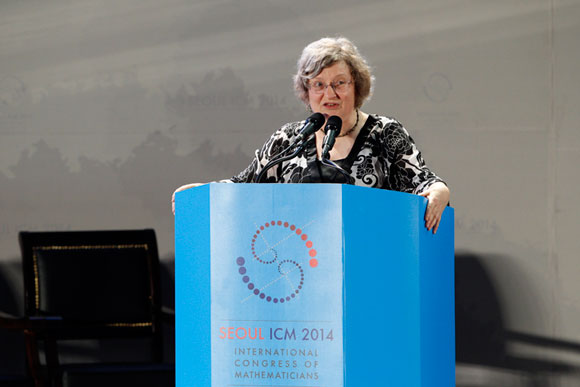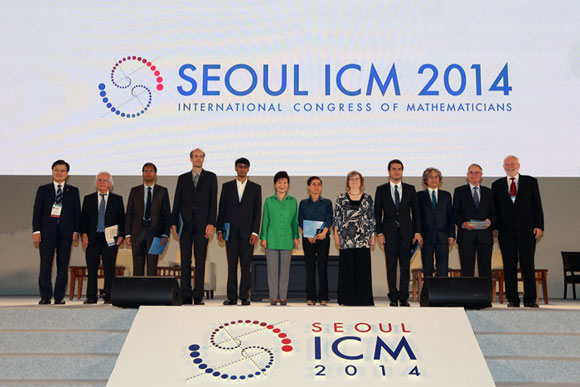Daubechies on the First Female Winner of the Fields Math Medal

Ingrid Daubechies, (above) a professor of mathematics at Duke, had a first hand look at the presentation of the prestigious Fields Medal to a woman for the first time.
Daubechies, current president of the International Mathematical Union, was at the podium when Iranian mathematician Maryam Mirzakhani, a professor at Stanford, was one of four scholars to receive the award, often considered to be mathematics’ equivalent of the Nobel Prize.
Daubechies called the news “a great joy” in an email to the New York Times.
“All researchers in mathematics will tell you that there is no difference between the math done by a woman or a man, and of course the decision of the Fields Medal committee is based only on the results of each candidate,” Daubechies wrote. “That said, I bet the vast majority of the mathematicians in the world will be happy that it will no longer be possible to say that ‘the Fields Medal has always been awarded only to men.’”
Mirzakhani received the award Wednesday at the International Congress of Mathematics in South Korea.
Her work has drawn deep connections between topology, geometry and dynamical systems that have advanced mathematics in all of those areas.
The Fields Medal also went to Martin Hairer, for his work in stochastic analysis, the branch of mathematics dealing with random processes like crystal growth; Artur Avila for novel solutions in chaos theory; and Manjul Bhargava for recent discoveries in number theory.
Phillip Griffiths, 76, who served as provost at Duke from 1983 to 1991, was awarded the IMU's Chern Medal for his long career of innovation in algebraic geometry and differential geometry. Robert Bryant, who holds the Phillip Griffiths professorship in mathematics at Duke, chaired the Chern Medal selection committee.
Below: Daubechies joins others from the ICM leadership and the four Fields Medal winners at the South Korean meeting.
